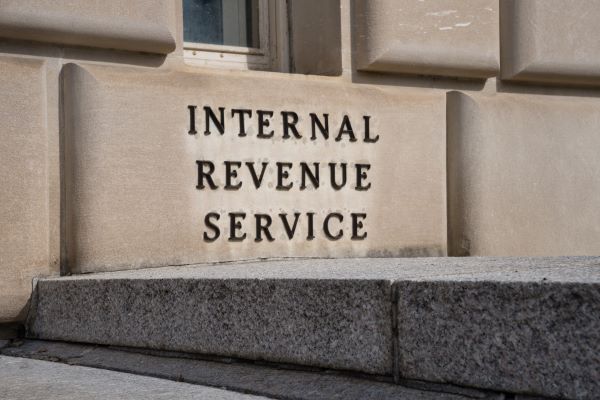IRS Warning about ERTC Scams
 Since the Employee Retention Tax Credit (ERTC) was created as part of the Coronavirus Aid, Relief, and Economic Security (CARES) Act, it has been a popular tax savings tool for many companies. Since the credit can be retroactively applied for through 2025, it continues to be promoted as an effective tax savings tool. While useful for eligible businesses, the credit has been aggressively marketed to all companies resulting in unqualified businesses submitting claims to the IRS. This has resulted in credit disqualification along with penalties and interest on the claimed amount. The IRS recently issued a warning designed to educate and inform taxpayers about these practices. To help clients, prospects, and others WhippleWood CPAs has provided a summary of the key details below.
Since the Employee Retention Tax Credit (ERTC) was created as part of the Coronavirus Aid, Relief, and Economic Security (CARES) Act, it has been a popular tax savings tool for many companies. Since the credit can be retroactively applied for through 2025, it continues to be promoted as an effective tax savings tool. While useful for eligible businesses, the credit has been aggressively marketed to all companies resulting in unqualified businesses submitting claims to the IRS. This has resulted in credit disqualification along with penalties and interest on the claimed amount. The IRS recently issued a warning designed to educate and inform taxpayers about these practices. To help clients, prospects, and others WhippleWood CPAs has provided a summary of the key details below.
Warning Signs of Aggressive Marketing
The amount of aggressive marketing making false claims about the credit and who is eligible has continued to increase. The recent warning includes specifics on the tactics used by these companies. It has been found these tactics often include unsolicited calls or advertisements mentioning an “easy application process”, ability to determine eligibility within minutes, and large upfront fees to claim the credit. More concerning is the assertion that eligibility can be determined without specific details about the taxpayer’s business and the claim it’s okay to apply because there is nothing to lose.
Unfortunately, the last two are the most deceptive. The ERTC is a complex credit that requires careful attention to eligibility determination. At the same time, the reality is that taxpayers have a lot to lose when submitting an unsubstantiated claim. First, the taxpayer is responsible for paying the often large upfront preparation fees and if the credit is improperly received there is repayment and the possibility of penalties and interest.
Common Tactics Used to Lure Victims
The IRS continues to see several tactics repeatedly used to lure taxpayers into applying for the credit. The most common is the use of aggressive marketing techniques such as radio and television advertisements, online promotions and even phone calls and text messages. There have also been reports of direct mail from the fake “Department of Employee Retention Credit” fashioned to look like an official IRS correspondence. There is also the prevalent practice of omitting key details about the program and how eligibility is determined. In fact, broad arguments are commonly put forth that all taxpayers are eligible without evaluating individual circumstances.
Protecting Your Business
Perhaps the best step taxpayers can take is to obtain information on . There is summary information on the IRS and other government agency websites. Concurrently, it is sage advice to only work with a trusted tax advisor. Many of these companies have only been in business a few years, focus exclusively on ERC claims, and often do not have a Certified Public Accountant (CPA) on staff. All red flags about the credibility of the business.
Additional Issue Not Addressed by the IRS Warning
In addition to the issues raised by the IRS warning, there is an additional major issue with using an unqualified preparer to claim the ERTC. There are complex interactions between the calculation of the ERTC and the debt forgiveness for the SBA disaster loans. If wages are used for the ERTC, those same wages cannot be used for debt forgiveness. If an ERTC refund preparer claims wages for the ERTC that are required for debt forgiveness, the business could need to repay some or all of the disaster loan.
Contact Us
The Employee Retention Tax Credit is a compelling tax saving opportunity for Denver businesses. However, only eligible companies should apply. For this reason, it is essential to work with a qualified tax advisor to evaluate your situation and determine the best way to proceed. If you have questions about the information outlined above or need assistance with another tax issue, WhippleWood CPAs can help. For additional information call 303-989-7600 or click here to contact us. We look forward to speaking with you soon.
About the Author

Mona Feeley CPA
Being a small business owner through some considerable life challenges has provided Mona the ability to see life and entrepreneurship from a unique perspective. Overcoming those challenges while seizing opportunities and moments that would probably pass others by has also given her an optimistic mindset and a brand of determination that is contagious to her colleagues and her clients.
